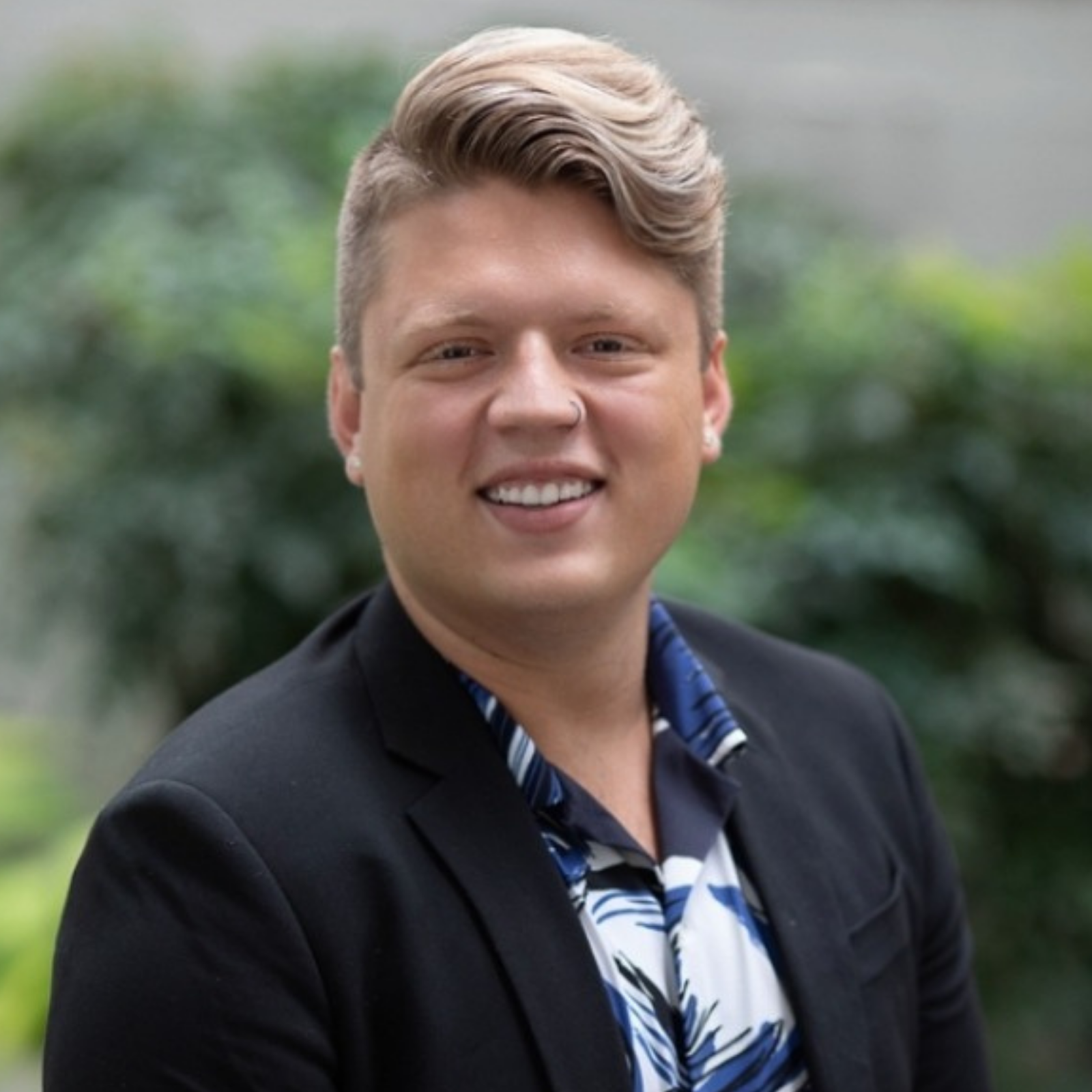
Funding Opportunities
Roy Scrivner Memorial Research Grant
LGBTQIA+ people face many challenges in forming, defining, and maintaining families. This program seeks to encourage the study of LGBTQIA+ family psychology and therapy through its support of promising graduate investigators whose research is oriented toward issues in this general area.
This program is no longer accepting applications for the 2026 program year.
Lesbians, gays, bisexuals, transgender, and other sexual and gender minority (LGBTQIA+) people face many challenges in forming, defining, and maintaining families. This program seeks to encourage the study of LGBTQIA+ family psychology and therapy through its support of promising graduate investigators whose research is oriented toward issues in this general area. Preference is given to advanced students who have demonstrated their commitment to this area through their dissertation research plans.
Program Goals:
- encourage talented students to orient their careers toward engaging LGBTQIA+ family issues through basic and/or applied research
- advance the understanding of problems faced by LGBTQIA+ families including those associated with cultural, racial, socioeconomic, and family structure diversity
- advance the understanding of successful coping mechanisms including sources of support and resilience for family members
- advance the understanding of clinical issues and interventions in the domain of LGBTQIA+
Roy Scrivner was a psychologist well-known for his passion and advocacy for the LGBTQIA+ community. Scrivner founded APA’s Division of Family Psychology’s Committee on Lesbian and Gay Family Issues and received numerous awards for his contributions to LGBTQIA+ psychology. Scrivner became president of the Texas Psychological Association in 1992, becoming the first openly gay president of a state psychological association in the United States. During his time at the Texas Psychological Association, Scrivner was an instrumental figure in repealing Texas’s law that prohibited same-sex sexual relations. Scrivner’s work has significantly impacted psychological representation of the LGBTQIA+ community, and his legacy lives on through the Roy Scrivner Memorial Research Grant.
Eligibility
APF encourages applicants from diverse backgrounds with respect to age, race, color, religion, creed, nationality, ability, sexual orientation, gender, and geography.
Applicants must:
- be an advanced graduate student, in good standing, endorsed by supervising professor
- have a demonstrated commitment to LGBTQIA+ family issues
Application Instructions
Application Materials:
- project proposal
- project timeline
- detailed budget and justification
- CV
- letter of recommendation from faculty advisor
Evaluation Criteria
Applications will be evaluated on:
- goals and objectives
- innovation and impact
- methodology and quality
- budget allocation
For detailed application instructions including formatting and content, please create or log into your GivingData account and review the comprehensive application instructions in the portal. If you still need assistance after reviewing the portal, please contact APF Programs at programs@ampsychfdn.org.
Please be advised that APF does not provide feedback to applicants on their proposals.
Please review our Program FAQs for important details on the application process.

Recent Recipient
Jason Schmidt Avendaño
University of South Florida
“Family Connectedness and Emotion Regulation: A Social Neuroscience Study of Neural Responses in Intersectional LGBTQ+ Individuals”
Past Recipients
2025
Jason Schmidt Avendaño, University of South Florida
“Family Connectedness and Emotion Regulation: A Social Neuroscience Study of Neural Responses in Intersectional LGBTQ+ Individuals”
2024
Muzi Nina Li, Purdue University
“Development and Validation of the Chinese Sexual Minority Future Family Formation Grief (FFFG) Scale”
2023
JoonWoo Lee, M.Ed, University of Wisconsin-Madison
“Transgender and Nonbinary Peoples’ Experience of Relational Trauma with Parental Figures”
2022
Lamont Stanley Bryant, University of Virginia
“Family of Origin & Chosen Family Social Support Dynamics Informing Sexual Gender Identity”
2021
Sara Bybee, University of Utah
“Post-traumatic growth among sexual and gender minority families facing advanced cancer”
2020
Melissa Halperin Manley, Clark University
“A Mixed-Methods Investigation of Sexual Minority Parents’ Experiences with Consensual Non-Monogamy”
2019
Em Matsuno, University of California, Santa Barbara
“Efficacy of an Online Intervention to Increase Supportive Behaviors Among Parents of Trans Youth”
2018
Kimberly Pentel, University of North Carolina, Chapel Hill
“Cognitive-Behavioral Couple Therapy for Same-Sex Female Couples: A Pilot Study of the ACCESS Program.”
2017
Shannon Dunlap, University of California, Los Angeles
“Investigating the impact of transgender-related minority stress and parent-adolescent functioning.”
2016
Sasha Canan, University of Arkansas
“A Mixed-methods Study of Sexual violence and Familial Support in Lesbian, Gay and Bisexual Adults”
2015
Hongjian Cao, The University of North Carolina at Greensboro
“Experiences of Stress and Romantic Relationship Among Same-Sex Couples: General Stress versus Minority Stress”
2014
Erin Burke, Yale University
“What About Gay Fathers? Hormones and Fatherhood in Same-Sex Male Couples”
2013
Shelby Scott, University of Denver
“Understanding Unique Challenges and Communication in Lesbian Romantic Relationships: Developing Guidelines for Practitioners”
2012
Amanda Veldorale-Brogan, Florida State University
2011
Joshua Kellison, Arizona State University
2010
Marco Armando Hidalgo, DePaul University
2009
Brian Buzzella, Boston University
Joanna Thome, Roosevelt University
2008
Allen Omoto, PhD, Claremont Grad University
Anessa Flentje, PhD, University of Montana
2007
Kelly Blasko, Pennsylvania State University
2006
Charles Strohm, University of California, Los Angeles
Abbie Goldberg, PhD, Clark University
2005
Katherine A. Kuvalanka, University of Maryland, College Park
Cara C. Bergstrom, University of Michigan
Nanette K. Gartrell, MD, University of California Medical School, San Francisco
2004
Sondra E. Soloman, PhD, University of Vermont
Mary Jane Phillips, Georgia State University
Kelly A. Blasco, Pennsylvania State University
2003
Geoffrey L. Ream, Cornell University
Jelica Todosijevic, University of Vermont
2002
Abbie Goldberg, University of Massachusetts, Amherst
Kimberly F. Balsam, University of Vermont
Brian D. Carpenter, PhD, Washington University
2001
Kevin Pedretti, Stanford University
Mary L. Lambert, University of Maryland
Esther D. Rothblum, PhD, University of Vermont
Nanette K. Gartrell, MD, University of California Medical School, San Francisco
2000
Kory Floyd, PhD, Cleveland State University
Charlotte J. Patterson, PhD, University of Virginia
